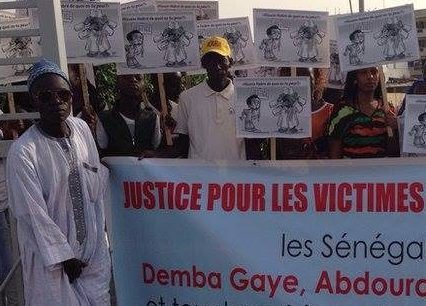
Hissène Habré case: a pardon or permanent release would breach the rights of his victims
On Monday 6 April 2020, a Senegalese judge granted Hissène Habré a two-month release from prison, where he was serving a life sentence for crimes against humanity, war crimes and torture, as ordered by the Extraordinary African Chambers (EAC) in 2016 and confirmed on appeal in 2017. His legal team had requested his release, arguing that the risk of his being infected with the coronavirus was high in jail.
The EAC also ordered reparations for 7,396 victims, which they have not yet received. This release happened in the context of COVID19 with the stated purview of protecting Habré from contracting the disease. However, this also happens a few months after rumours that the Senegalese authorities are considering issuing a pardon in his case.
In the 2018 Barrios Altos Judgment on the pardon of Alberto Fujimori, the Inter-American Court of Human Rights reminded that the execution of a criminal sentence is a key component of the victims’ right to justice and that the undue granting of pardons, amnesties or other benefits can result in a grave form of impunity.
When adopting measures that affect the sentence of those responsible for grave human rights violations, States must take into account not only the health situation of the convicted person but also whether they have served a substantial part of the prison sentence, whether the person has paid any due reparations to the victims, whether the convicted person has contributed to establishing the truth about the violations and has acknowledged their responsibility in the violations, among other factors.
In 2019, the International Criminal Court confirmed in the Gaddafi case that, “granting amnesties and pardons for […] crimes against humanity is incompatible with internationally recognized human rights. Amnesties and pardons intervene with States’ positive obligations to investigate, prosecute and punish perpetrators of core crimes. In addition, they deny victims the right to truth, access to justice, and to request reparations where appropriate”.
As such, Senegalese courts must ensure Habré returns to prison after this temporary release. A pardon or a permanent release would breach the rights of his victims to justice and would further the suffering they are still experiencing. Habré is yet to pay the reparations ordered by the EAC and owed to his victims.
